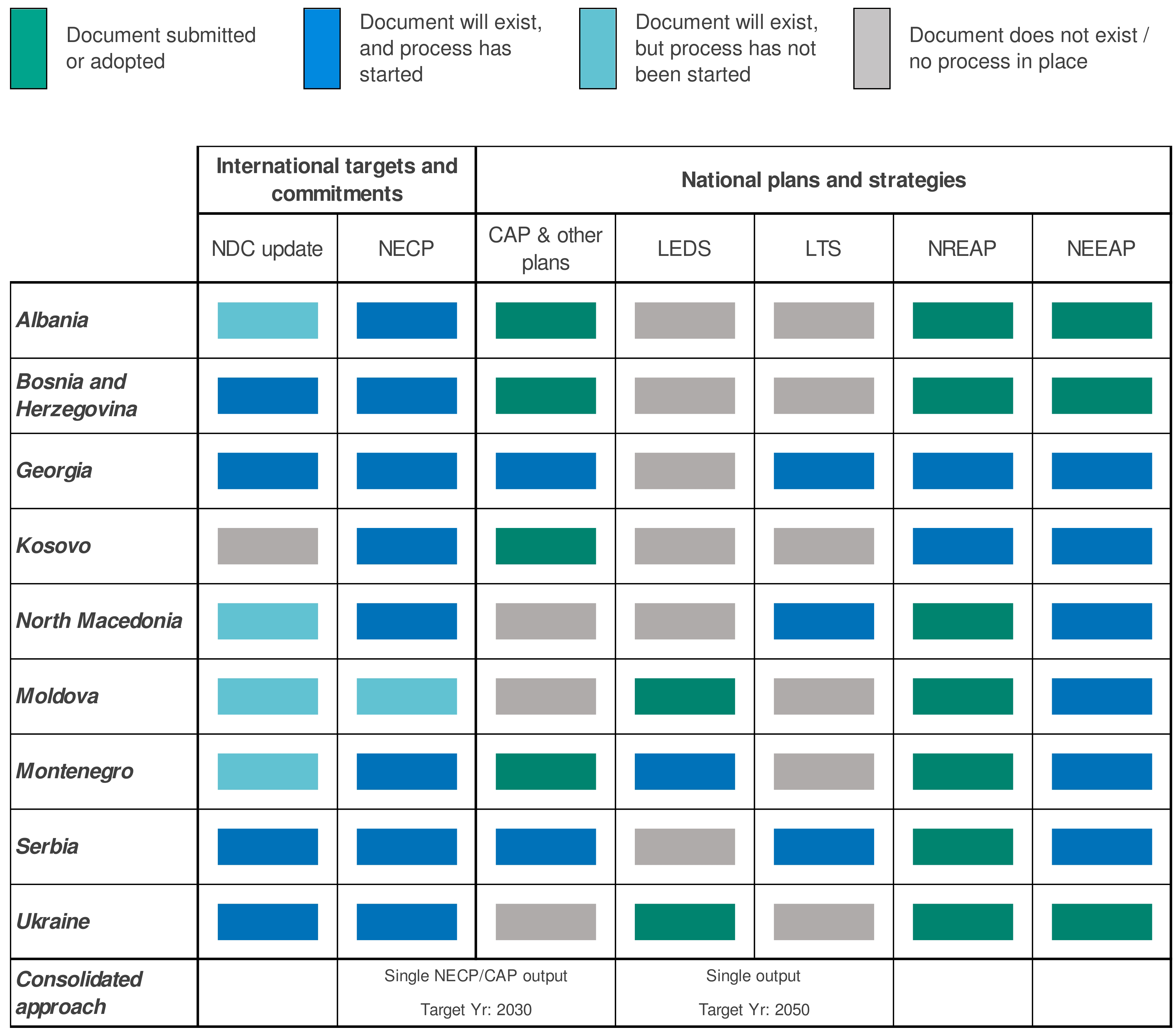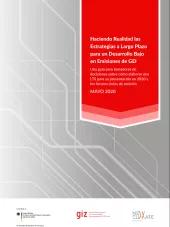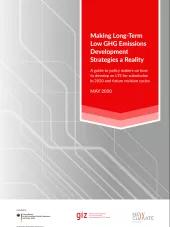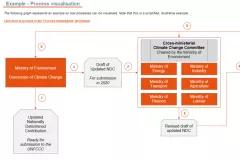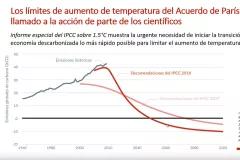The objective of this guidance document is to provide Contracting Parties of the Energy Community with a concise and simple guidance on how they could consolidate their multiple climate change and energy planning processes and international obligations into one single process, ensuring efficiency and alignment.
Introduction:
Energy Community Contracting Parties –Albania, Bosnia and Herzegovina, Georgia, Kosovo*, North Macedonia, Moldova, Montenegro, Serbia and Ukraine– have committed to monitoring and reporting in the areas of renewables, energy efficiency, and greenhouse gas emissions by adopting a Recommendation (2018/01/MC-EnC) on preparing for the development of National Energy and Climate Plans (NECPs) addressing the five dimensions of the Energy Union.
The Policy Guidelines (PG 03/2018) on the development of NECPs state that these integrated national plans should cover the period from 2021 to 2030 and lay down the pathway to achieve targets set for 2030 regarding the increase of renewable energy in overall energy consumption, increased energy efficiency and reduction of greenhouse gas emissions. Further, the NECPs should also include a perspective until 2050 in order to ensure consistency with long-term relevant policy objectives at EU, UNFCCC and Energy Community level. According to the Policy Guidelines, Contracting Parties are requested to submit their final NECPs to the Secretariat by the end of 2020.
Meanwhile, other energy and climate strategy and planning processes are currently ongoing in all of the Contracting Parties (updated NDC, long-term strategies (LTS) for low emission development, national climate change strategy or action plan, national energy sector strategies, etc.). The preparation of all these strategy documents and action plans can place a burden on available resources for planning exercises. On the other hand, there are considerable opportunities for exploiting the synergies between these processes and for a more efficient development of cross-sector planning towards commonly agreed objectives for climate and energy.
Main findings:
Analysing the situation in each of the nine Contracting Parties, we conclude there is an overlap between many climate related processes in all of them, offering opportunities for consolidation:
- In some countries, medium-term climate-related strategies need not to be developed in separate processes: The content of the climate-related action plans can be a direct input to the ‘decarbonisation of the economy’ chapter of the NECP. Other sectoral medium-term strategies like the NREAPs, NEEAPs, and LEDS can also be direct inputs to the energy-related chapters of the NECP or included in the NECP process, given significant content and objective overlaps.
- NDC updates can be international reporting documents based on the latest NECP or other national Climate Action Plans or Strategies: NDC updates can synthesise the plans and targets from the latest iteration of the NECP or other climate-related action plans, in line with the information requirements of the international community, so that these outputs can be considered synthesis reporting documents only, without additional planning processes required.
- Contracting Parties should clearly define roles and mandates for cross-ministerial coordinating bodies, working groups, and data collection teams: Having overarching legislation which defines procedures and responsibilities for climate processes can accelerate action and facilitate implementation. This includes the establishment of a cross-ministerial body that has an overview of national climate-related processes and permanent technical working groups for each relevant mitigation sector.
- Make use of Progress Reports when writing National Communications (NC) to the UNFCCC and vice versa: Both the NCs and the Progress Reports to the Energy Community should include information on steps taken to increase the use of renewable energy, increase energy efficiency and reduce GHG emissions. The timelines of these documents should therefore be aligned as much as possible to allow for Progress Reports to be based on information prepared for the preceding NC and vice versa.

